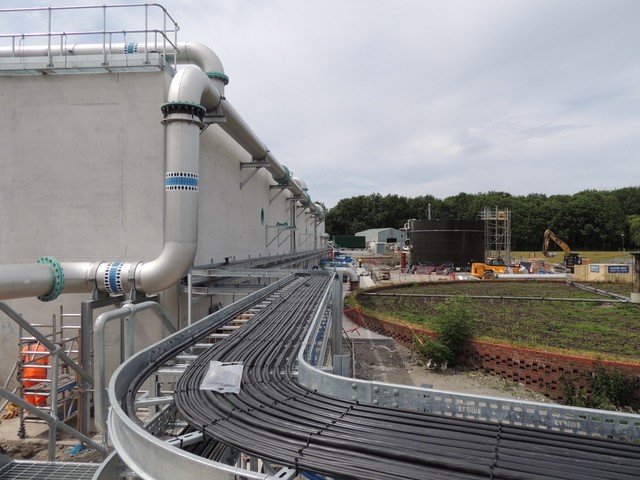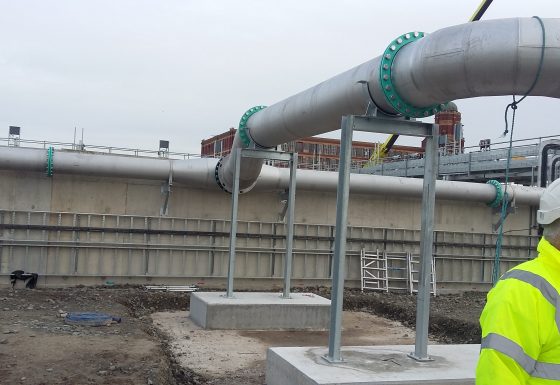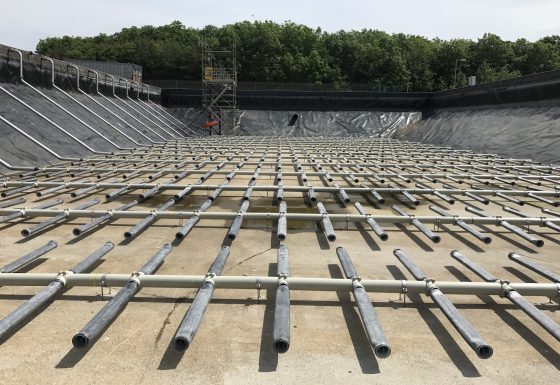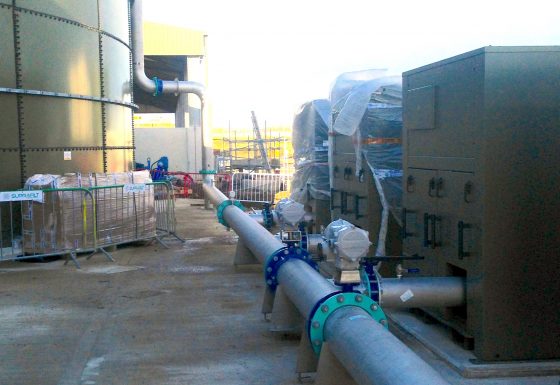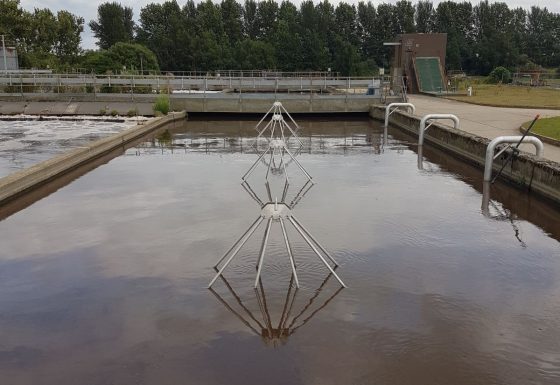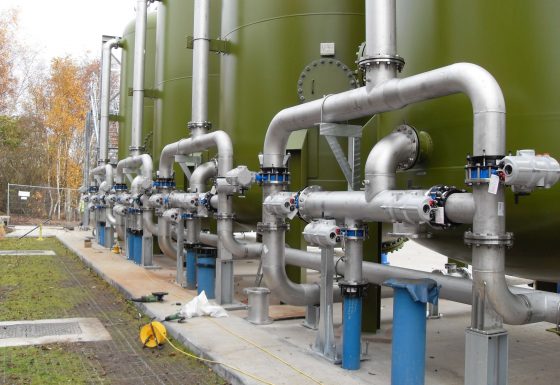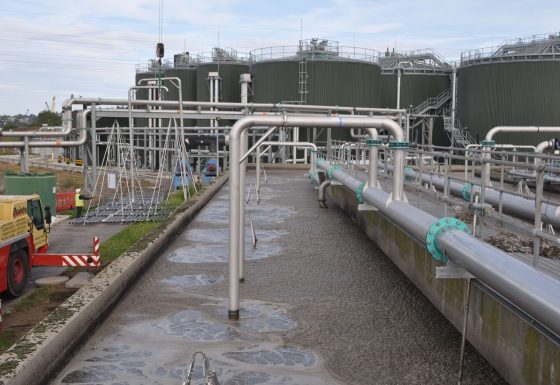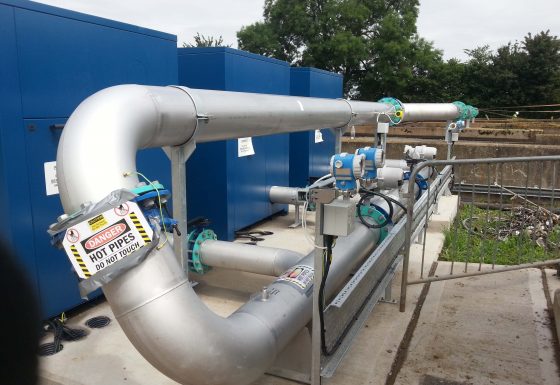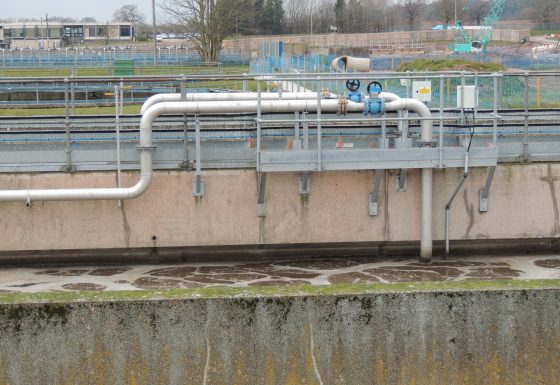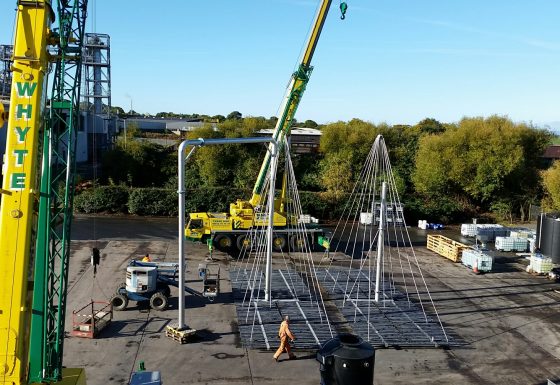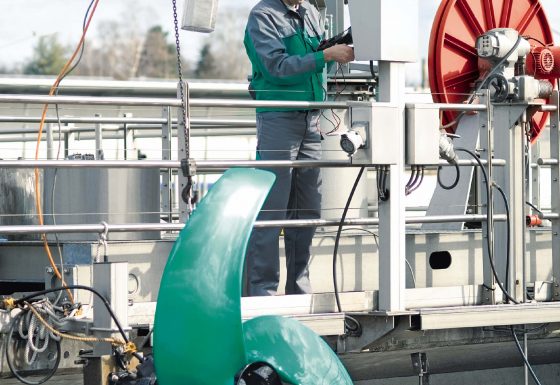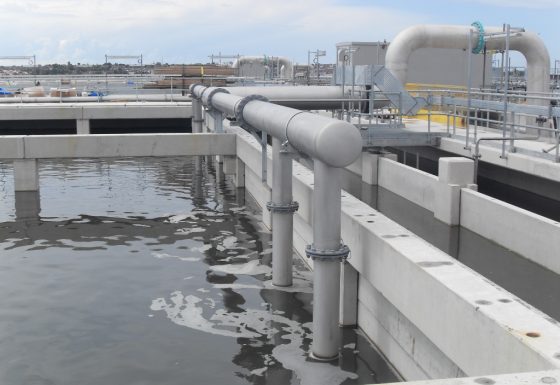Kendal
The installation of the innovative Nereda technology at Kendal WwTW was a first for all parties.
It was the first time United Utilities had agreed a full scale application of the system. The first time delivery contractors LiMA had worked on one, and the first time Suprafilt had designed, manufactured and installed one.
As such, all three parties were keen to ensure this project went as smoothly as possible and all three were conscious that the project would attract a lot of industry attention.
To smooth the path United Utilities had been trialling the system at Davyhulme. Around this time Suprafilt started talks with Nereda technology provider Royal HaskoningDHV to gain a better understanding of the systems. They in turn were impressed by the full design–fabrication–installation solution Suprafilt were able to offer.
Why Nereda:
Nereda’s key advantage over conventional activated sludge is principally down to the nature of the granules. Unlike with conventional processes, bacteria are concentrated into a compact granular structure producing excellent settling characteristics. The compact structure also produces different zones providing optimum conditions for simultaneous nitrification and denitrification, as well as biological phosphorus removal. Together this means the Nereda process is able to operate at high biomass concentrations leading to compact reactor footprints.
The project:
Prior to the Kendal tender win, Suprafilt spent several months researching the technology in depth and developing the team’s understanding of the technical challenges involved. In fact, they were sufficiently advanced in their thinking that they were able to put together an outline design to show the client at their first meeting. This was done to demonstrate their knowledge and give LiMA and United Utilities confidence that Suprafilt knew what they were doing and would be able to deliver.
Duly appointed, Suprafilt proceeded to pull together the full design to meet the requirements. All the component parts were manufactured in the company’s Lancashire base. It was a 5-month programme from receiving the order to delivery, with a further 12-week window for the installation.
One of the key factors in the selection of a Nereda system was the relatively reduced footprint the plant uses. However, another characteristic is the fact they involve around four times as much pipework than conventional activated sludge plants. A lot of this pipework is at high level and needs supporting. The Suprafilt team designed and built the supports.
The pressure was on to meet the design deadlines and ensure the installation went smoothly so the team could keep to programme and safety. The timescales were tight but Suprafilt met all key milestones and delivered on programme.
Because of the nature of the Nereda plants, the team had far more pipework to install than at conventional sites and there were far more fixings.
Therefore, in order to reduce installation time on site, the company used Design For Manufacturing processes to build as much as possible offsite. However, that meant a full-time pedestrian crane was required on site for offloading assemblies that weighed 2–3 tonnes each.
Project Overview
Value: £2.15 million
Client: United Utilities
Delivery Contractor: LiMA

